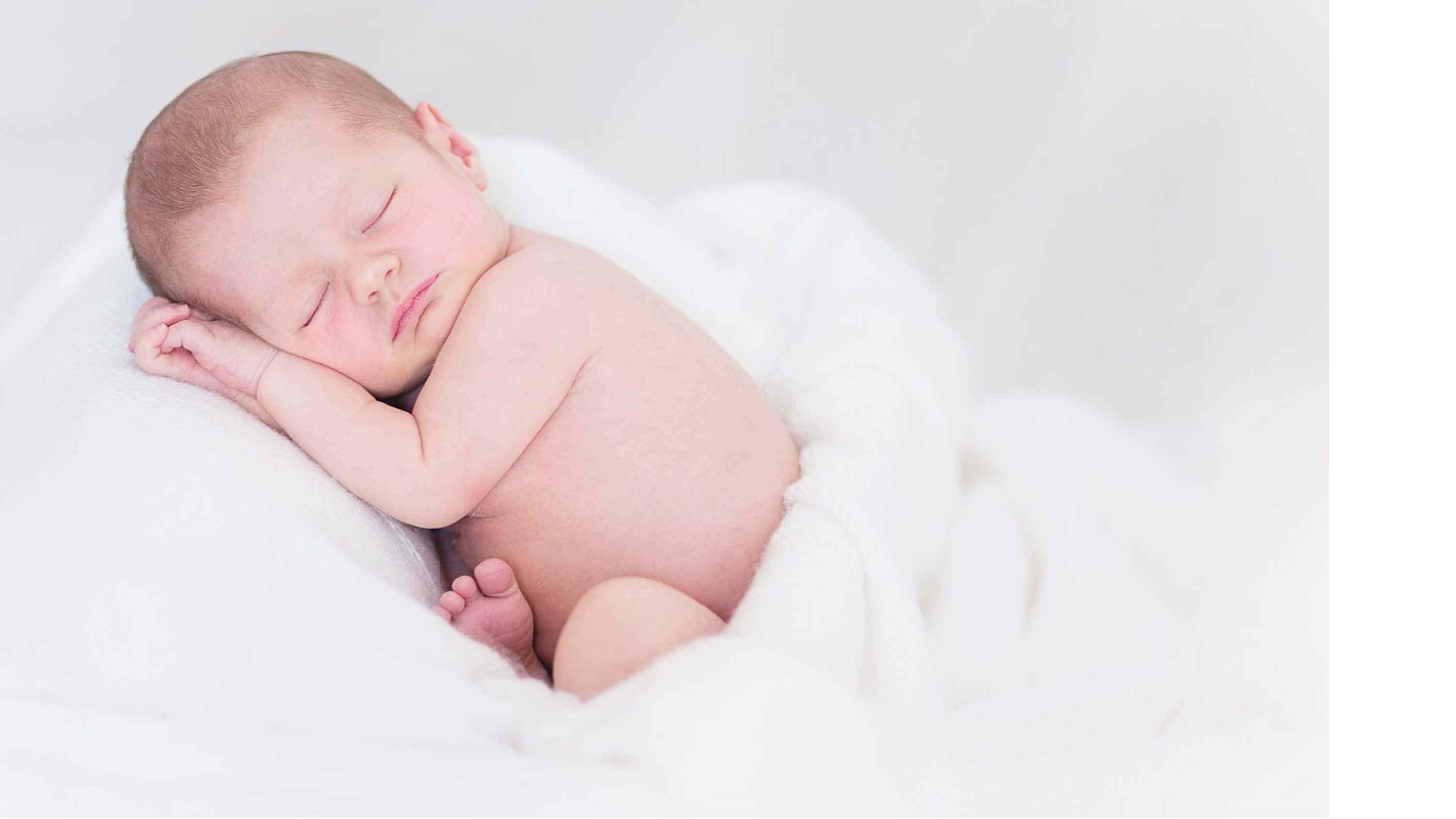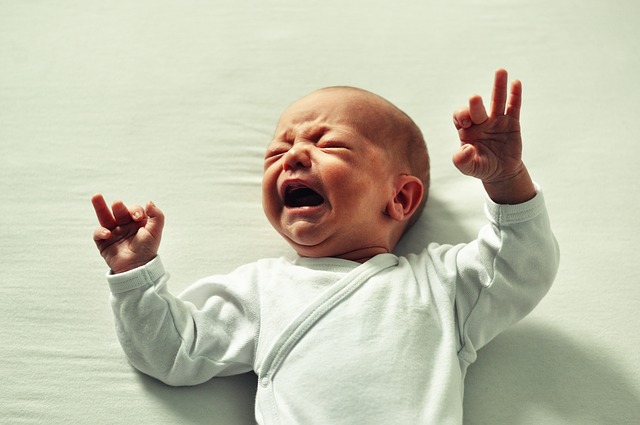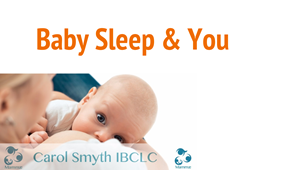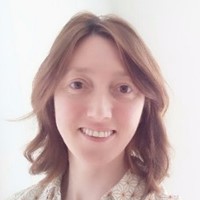I am an IBCLC (International Board Certified Lactation Consultant) in private practice in Northern Ireland and a La Leche League Leader with La Leche League of Ireland
Selling Baby Sleep - Who is the sleep program really for? The baby or the parent?

Selling sleep to parents of young babies is a very big business. As soon as our babies are born, family, friends and random strangers suddenly start asking us about sleep. "Is he/she a good baby?" clearly being a question about sleep, even though it doesn't mention it. What "good" really means is a baby who sleeps long stretches and doesn't wake the parent - i.e. a baby who sleeps the way the adult parents slept before they ever got pregnant. Is asking a baby of a few months old to sleep like an adult reaslitic?
The number of online programs and sleep consultants seem to have grown exponentially recently. They cater to ages from 3 months and upwards, all promising less night time disruption for the parent. I've had a look at a few programs over the last couple of days to see what they constitute as a sleep problem. Here are a few examples of what they are suggesting are problematic:
Babies who catnap during the day, babies who refuse to settle or sleep in their own bed, or who wake early in the morning or those who need rocked/fed to sleep"
These sound like pretty normal behaviours for a baby to me! A catnapping baby can even be very convenient for a busy parent fitting in school runs or drop offs with other children
One baby sleep clinic I saw helps you identify whether your baby has or is causing a sleep problem through questions like, "Do you feel tired all the time?" "Are you anxious about putting your baby to bed?" "Do you lose your temper with your children at nighttime?
What do you notice about those questions? They aren't focused on the baby at all. They are about the parent - the parent's tiredness, anxiety and mood, not about the baby's needs, temperament or development. Now, these issues are clearly important. If a parent is exhausted, anxious, low mood or irritable then they do need help and support, but does labelling their baby as having a sleep problem help? Could it be that their baby is actually sleeping in a developmentally normal way, but more support is needed around parental sleep. not the baby's sleep?
What is Normal Sleep?
Firstly it's important to say that no one sleeps all night - baby or adult. We have sleep cycles where our brainwaves change through different stages of sleep, then we have a brief awakening and enter another sleep cycle. For adults, a sleep cycle is approximately 90 mins, and that brief awakening may involve something like turning over, adjusting the covers etc, and you probably won't even remember them in the morning - or not all of them. A newborn sleep cycle is more like 45 mins, and it takes quite some time to turn to a 90 min cycle. Research suggest that the average sleep cycle is 47 mins at birth, 49 mins at 3 months, and 50 mins at 8 months (Stern et al 1969). No big shift at either 3 months or 6 months when many books or programs suggest sleep training. Babies naturally arouse and wake frequently, and these arousals are important, partly due to the need to feed frequently (tiny tummies need filled frequently), but also as a protective mechanism against SIDS. On the University of Notre Dame website where Dr James McKenna has conducted large studies looking at infant sleep, he states,
arousals lead to the baby breathing more stably over time, and to more variable heart rates and breathing.
Variability in breathing patterns of infants is good and a sign of health, ordinarily, and such variability is often associated
with more substantial inhalations of oxygen, leading to shorter apneas in deep stage of sleep
from which awakenings can be difficult (see Richards et al 1998).
Quote from http://cosleeping.nd.edu/frequently-asked-questions/#Q13
This kind of research suggests that babies wakening frequently is not the problem. It is, in fact, the solution to the problem. It is an evolutionary strategy to encourage babies to wake and stabilise their breathing.
Where is Normal Baby Sleep?
We are mammals. Where do other mammal babies sleep?

They generally sleep on a parent / caregiver's body. Where do we find our babies sleep best? Answer - on a parent / caregiver's body. Many babies do not sleep well when separated from a mature adult nervous system - and this is entirely normal and developmental as well. Our babies are born extremely immature compared to many other mammals. Their respiration is immature, their brains are immature, and being attached to an adult nervous system is regulating for them. We all know that skin to skin contact is great for babies after birth as it helps a baby regulate their temperature, breathing, heart rate etc. This doesn't suddenly change in the days following birth. Babies continue to need help to self-regulate for quite some time. Research also suggests that a baby's body is under stress if they are sleeping alone, compared to sleeping with their mother. Morgan et al 2011 found that a baby sleeping alone had starkly increased heart rate variability and spent 86% less time in a quiet sleep state compared to a baby sleeping on the mother's body. Babies are physiologically designed to be held on a mature body.
We however, as a WEIRD society (Western, Economic, Industrialised, Rich, Democratic) have become out of touch with the physiological norm and expect our babies to sleep alone, and to sleep like an adult, and diagnose sleep problems when they don't. Large number of parents in UK/Ireland see their baby's sleep as problematic. In contrast, only 7% of babies in Japan are considered by their parents to have problematic sleep (Kohyama 2011). Are babies in Japan really sleeping significantly differently, or is the expectation of normal baby sleep different?
Sleeping Through the Night
Sleeping through the night is the treasured goal of sleep programs, and a goal that parents are pressured to achieve by society. There is an unspoken expectation that babies should sleep through the night as early as possible - something we should strive to achieve. Much of this expectation came from a study in 1957 (Moore & Ucko) which stated that 70% of babies in their study started "sleeping through the night" at 3 months. This is quoted in books and programs and informs many sleep programs. What isn't so widely published is that the study defined sleeping through the night as 5 hours, sleeping through was defined as parent not being woken (baby was in a separate room), and that half of the babies reverted to more frequent waking after this case of sleeping 5 hours. 70% did not "start" sleeping 5 hours consistently at all. On top of this, "sleeping through the night" often means something very different to parents. Henderson et al, 2013 found that New Zealand parents considered sleeping from 9pm to 6.30 am (9.5 hours) to be sleeping through. In reality we know that half of all 12 month olds wake frequently at night (Acebo 2005). Half of all babies means that this is a normal pattern!
Parental Sleep
Is the problem actually parental sleep? We sleep extremely differently to how we have evolved to sleep. Electric light really has only become common in our houses in the last 3 generations. Before that we had candles, oil lights and fire. These are very different kinds of light to LEDs and florescence qualities of electric lights. Before electricity we followed the sun much more closely. We got up and worked during daylight hours. We slept in the darkness. Now when it gets dark, we turn on the light. We turn on our phones, our tablets, our nightlights - all of which trick our body into thinking it is daytime, and to delay the secretion of the melatonin hormone which makes us feel sleepy. It is suggested that we currently get 500 hours of sleep less a year than our ancestors 100 years ago. That's about 90 mins every night. In fact an American Poll suggests that in the US, adults get 2-3 hours less every night than 100 years ago. It is estimated that parents lose another 44 days of sleep in the first year after having a baby. That's an additional 2.9 hours every night. That's a lot of sleep. Add them together conservatively and we are reaching 4-5 hours of sleep loss every night. No wonder new parents are exhausted. No wonder their family and friends and community are concerned about them. Is expecting a baby to sleep differently than physiologically normal the solution to that? Or is the solution to consider how we are living our lives and our use of lighting in order to claim back at least that 1.5-3hrs of sleep we are losing at night through artificial lighting? Is the solution to support new parents better so that they can get some of that extra 2.9 hours during the day when their baby is sleeping. We tell parents to sleep when the baby sleeps, but do we tell them how important that is, and do we support them to do it?
Can a Baby Be Taught to Sleep?
Babies seem to be able to fall asleep from very shortly after they are born. Many new parents show concern at how sleepy their baby is, or how hard it can be to wake their baby to feed, so it is slightly odd that as a society we also tell parents that they need to teach their baby to sleep.
Consider your own sleep as an adult. Can you go to sleep right now if someone tells you to? If at 8pm or some other random time, you were laid down in a bed and the light turned off, could you go to sleep? Maybe, but maybe not. Maybe you have a little routine that you like to go through at night. Maybe you like to read, or watch something. Maybe you take a little time pottering around your bedroom as a wind down. In order to go to sleep, I suggest, that we all (adults and babies alike) need 3 things:

1. We need to feel physically relaxed. It's very hard to go to sleep if you are physically tense or too hot or cold or uncomfortable. It's why hypnosis apps and MP3s that help us to sleep usually start by concentrating on physically relaxing the body.
2. We need to reduce any sense of stress. It's pretty hard to go to sleep if you are stressed about work or an exam tomorrow.
3. We need to feel safe. I'd say it's impossible to fall asleep if you are worrying that you didn't lock the door and now you can hear a noise in the hallway, or to sleep when the smoke alarm is beeping oddly.
Where do breastfed babies generally feel most relaxed, calm and safe? At the breast. Where do all babies feel relaxed, calm and safe- with their parent or other loving caregiver. Like all mammals, our babies want to sleep with us and to be with us. They want to subconsciously check that they are still with us when they are in those brief arousals.
A 2010 study looked at sleep training of babies aged 4-10 months (Middlemis et al 2012) which aimed to get the babies to "self-settle". Part of the study tested saliva of both the babies and their mother for cortisol levels (a stress hormone). The study found that at the beginning of the study the mother and the baby cortisol levels were synchronised - the evolutionary reason for this is simple - when a baby is stressed, the mother becomes stressed and will act to calm the baby. Indeed when the sleep training began, mothers did begin to get distressed when their baby cried. By the 3rd day of sleep training however, the cortisol link between mother and baby had been broken. The study found that the baby now had elevated cortisol, however they did not cry (presumably because the cries had not been effective in getting help), and as they did not cry the mother didn't get stressed. So, yes the study found that the baby didn't cry as much, the mum didn't get as stressed, but the baby was. The evolutionary link was broken. They had disassociated.
How do we Maximise Family Sleep?
Can we improve family sleep without sleep training? We want to make sure everyone sleeps safely and well. Does it matter where they sleep? If your baby wants to sleep with you, sleeps better/longer in your arms and you are able to meet the safe sleep guidelines -does it matter that he/she is not in a cot or in their own bed? I know that many people have a lot of fear around co-sleeping and the thought that it isn't recommended, but the Lullaby Trust in the UK have recently changed their advice from advising against cosleeping, and instead now give parents information about safe cosleeping. Likewise the NICE guidance changed a few years ago and no longer advise against cosleeping, but rather say that HCPs should give information to allow parents to make informed decisions about co-sleeping. When thinking about bedsharing please do read through the safe sleep guidelines so that you can be sure that you meet the guidelines. I am linking to 2 large sleep research websites which have excellent information on normal sleep and bedsharing - the BASIS website based at Durham University and the Cosleeping website from Notre Dame University. See the further reading section for the links.
Sleep is developmental. As a child grows through babyhood to childhood their sleep cycles start to elongate from the 45min cycle to a 90min cycle, but this progress is not linear. At times sleep will be more disrupted and less disrupted. This is normal too. We can do nothing to speed up the physiological process of brain development of these sleep cycles as far as I am aware. As a child grows they also become more capable of moving through from one sleep cycle to another without needing help into the next sleep cycle. Feeling safe and secure aids with this. As a parent, understanding how a baby sleeps, and what to expect from normal development also reduces anxiety and helps you to feel more secure about sleep. To a baby, being close to a parent/ caregiver helps with this feeling of safety, and so helps the baby sleep longer. Interestingly close contact also helps mothers sleep better. Mosko et al 1997 found that 84% of bedsharing mothers reported that they had "good" or "enough" sleep. Only 64% of mothers who slept separately from their baby reported good or enough sleep. There are lots of gentle methods to help transition older babies through those sleep cycles without training.
Over 95% of Americans in a 2011 poll used electronics in the hour before bed. I imagine this is similar in other WEIRD countries. This is artificial light shining directly into the eyes affecting our melatonin production, and affecting how well we fall sleep and stay asleep. How many of us turn the phone on or a night light on for the night feeds - more light shining in your eyes and the eyes of your baby, telling your body that it is morning and time to get up. Caffeine in the 6 hours before bed has been found to reduce night time sleep by 1 hr (Drake et al 2013), and if we are breastfeeding that caffeine passes in our milk. In order to compensate for tiredness the following day we often take more caffeine to provide more stimulation. The way we currently live massively impacts our sleep, and we have an increasing sleep deficit with each generation. As that sleep deficit increases and parents get more tired, the societal concern and pressure for a baby to sleep differently increases.
Our grandparents may have been getting 2-3 hours extra sleep a night simply due to lighting and lifestyle. How much easier would it be to cope with normal baby sleep development if we got that extra 2-3 hours a night. Sleep training isn't aimed at helping a baby sleep. It's aimed at helping a parent to sleep. Who has the sleep problem? The baby who sleeps like a baby, or the adult who stays up past dusk with the ceiling light, phone and ipad?
Baby Sleep & You Webinar
If you have any questions about a consultation or would like to arrange to meet, please get in touch.
Safe Sleep Information
BASIS - Baby Sleep Information Source from Durham University https://www.basisonline.org.uk
Mother-Baby Behavioural Sleep Laboratory website from Notre Dame University https://cosleeping.nd.edu
Further Reading
1.
1 November 2011, Pages 817-825 https://www.sciencedirect.com/science/article/pii/S0006322311006391
3. Kohyama, Mindell, Sadeh Sleep characteristics of young children in Japan: Internet study and comparison with other Asian countries
Pediatrics International Vol 53, Issue 5 October 2011 Pages 649-655 https://doi.org/10.1111/j.1442-200X.2010.03318.x
4. Moore & Ucko Night Waking in Early Infancy: Part 1
Archives of Disease in Childhood 1957 Aug; 32(164): 333–342. https://www.ncbi.nlm.nih.gov/pmc/articles/PMC2012111/
5. Henderson, Motol, Blampled Sleeping through the night: A community survey of parents' opinions about and expectations of infant sleep consolidation
Journal of Paediatrics & Child Health 2013 Vol 49, Issue 7 Pages 535-540 https://doi.org/10.1111/jpc.12278
6. Acebo, Sadeh, Seifer, Tzischinsky, Hafer, Carskadon Sleep/Wake patterns derives from activity monitoring and maternal report for healthy 1 to 5 year old children
Sleep, Volume 28, Issue 12, December 2005, Pages 1568–1577,https://doi.org/10.1093/sleep/28.12.1568
7. National Sleep Foundation 2011 Poll, Technology & Sleep
https://www.sleepfoundation.org/professionals/sleep-america-polls/2011-poll-technology-and-sleep
8. Kirkova D, No wonder we feel exhausted! New parents lose 44 days of sleep in the first year of a child's life
Mail online
, Pages 227-232 https://doi.org/10.1016/j.earlhumdev.2011.08.010
https://www.lullabytrust.org.uk/safer-sleep-advice/co-sleeping/
Important Information
All material on this website is provided for educational purposes only. Online information cannot replace an in-person consultation with a qualified, independent International Board Certified Lactation Consultant (IBCLC) or your health care provider. If you are concerned about your health, or that of your child, consult with your health care provider regarding the advisability of any opinions or recommendations with respect to your individual situation.

